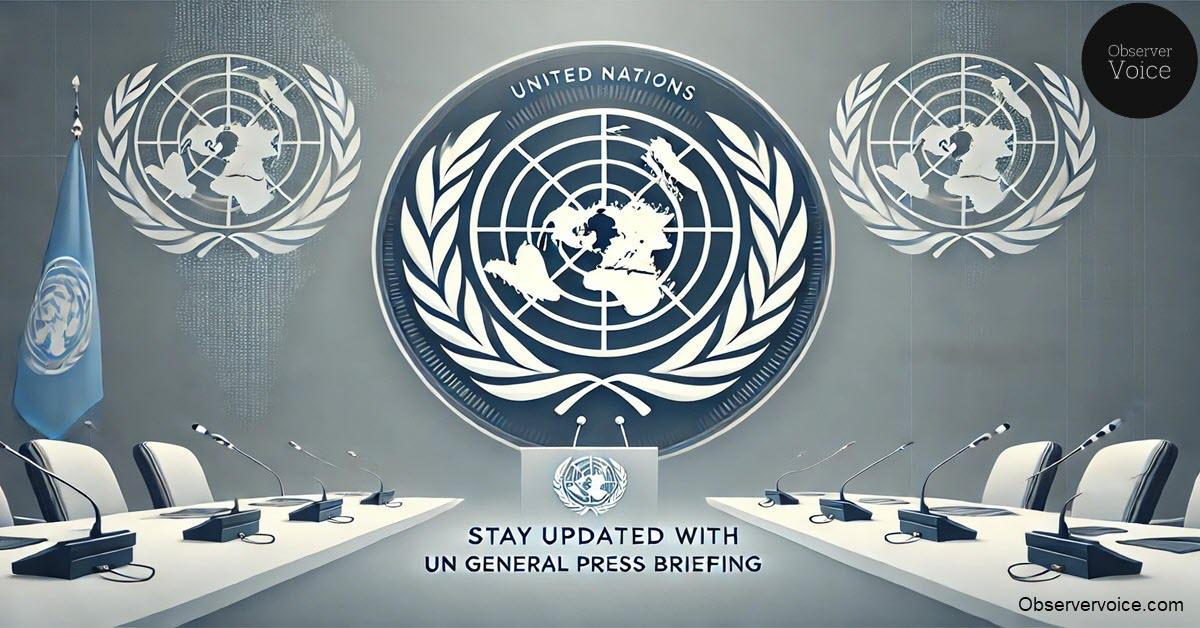Urgent Call to Protect Humanitarian Workers in 2024

The year 2024 has emerged as one of the deadliest for humanitarian workers, with alarming statistics highlighting the dangers they face. During a recent Security Council meeting, speakers urged immediate action to implement the Secretary-General’s recommendations aimed at safeguarding aid and UN personnel. The call for accountability and increased support for these workers has never been more urgent, as the threats they encounter continue to escalate.
The Rising Toll on Humanitarian Workers
As of now, 282 aid workers have lost their lives in 2024, surpassing last year’s grim total of 280. This figure is more than double the annual average over the past decade. The increase in fatalities is attributed to major conflicts and civilian casualties in regions such as Gaza, Sudan, and South Sudan. Abby Stoddard from Humanitarian Outcomes emphasized that state actors are now responsible for a significant portion of these deaths, overshadowing the threats posed by non-state armed groups and criminals. This trend raises serious concerns about humanitarian access to vulnerable populations and the overall stability of global order.
Stoddard described the situation as a “step-change” rather than a temporary spike, indicating a troubling shift in the landscape of humanitarian work. The implications of these findings are profound, as they suggest that the very entities tasked with upholding international humanitarian law are increasingly becoming the primary threats to aid workers. This reality not only jeopardizes the safety of humanitarian personnel but also hampers the delivery of essential aid to those in dire need.
Calls for Accountability and Support
During the meeting, speakers highlighted the need for the Security Council to take concrete actions to address the growing impunity surrounding attacks on humanitarian workers. Stoddard recalled the Council’s adoption of resolution 2730 (2024), which called for the protection of UN and humanitarian personnel. She urged the 15-member body to implement additional measures to hold perpetrators accountable, including the establishment of ad hoc tribunals and the promotion of international legal avenues for justice.
Many humanitarian workers now express distrust in existing notification systems, fearing that their involvement may increase their risk due to bad faith actions by conflict parties. Stoddard called for collective efforts to enhance protocols and create accountability mechanisms, especially when deconfliction efforts fail. Furthermore, she emphasized the importance of empowering local and national humanitarian actors, ensuring they receive the same protections as international agencies.
Humanitarian Operations Amidst Danger
Despite the escalating risks, global humanitarian operations have managed to provide life-saving aid to over 116 million people this year. Lisa Doughten, Director of the Financing and Partnerships Division at the Office for the Coordination of Humanitarian Affairs, highlighted the tragic loss of more than 330 humanitarian workers since October 7, 2023, primarily from the United Nations Relief and Works Agency for Palestine Refugees in the Near East (UNRWA). She underscored that no amount of security management can protect workers when conflict parties deliberately target them or ignore their obligations under international law.
Doughten outlined three critical areas for action: condemning attacks against aid workers, ensuring systematic accountability for serious violations, and providing greater support for victims and survivors. She urged the international community to apply diplomatic and economic pressure to uphold international law, advocating for effective humanitarian exemptions in sanctions regimes and counterterrorism legislation. Additionally, she called for reparations, legal aid, and mental health support for survivors and their families.
The Need for Moral Clarity and Support
In his first briefing to the Council, Under-Secretary-General for Safety and Security Gilles Michaud expressed his deep concern over the lack of accountability for violence against humanitarian and UN personnel. He stressed that all Member States must clearly articulate the need to protect humanitarian workers and ensure accountability for acts of violence committed by both state and non-state actors.
Michaud pointed out that UN operations are currently navigating multiple overlapping crises, including those in Gaza, Lebanon, Haiti, and Somalia. He noted that locally recruited personnel, who make up the majority of those affected, often bear the heaviest burden. He urged Member States to support normative frameworks like the Convention on the Safety of United Nations and Associated Personnel and its Optional Protocol, emphasizing the need for universal adherence and implementation.
As the humanitarian landscape continues to evolve, the Security Council’s role in safeguarding aid workers and ensuring accountability for violence remains critical. The international community must act decisively to protect those who risk their lives to help others.
Observer Voice is the one stop site for National, International news, Sports, Editor’s Choice, Art/culture contents, Quotes and much more. We also cover historical contents. Historical contents includes World History, Indian History, and what happened today. The website also covers Entertainment across the India and World.

